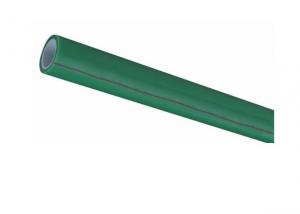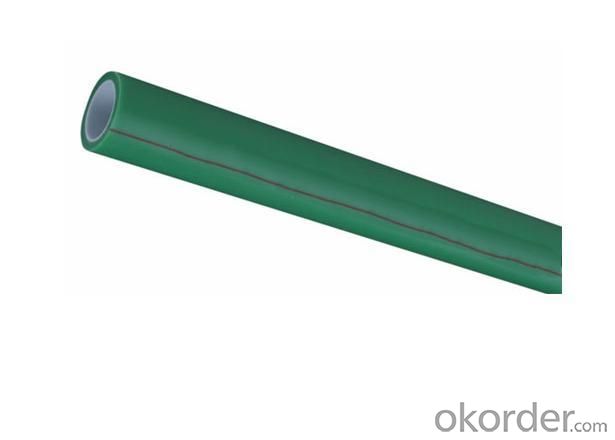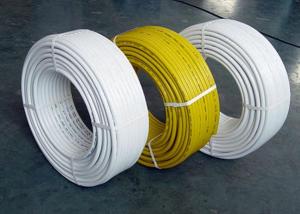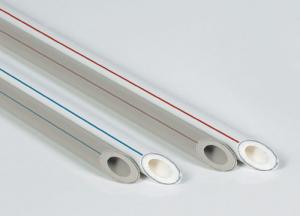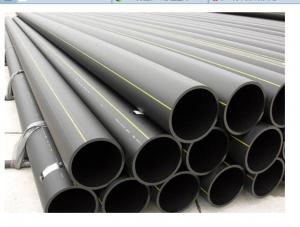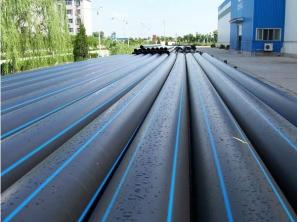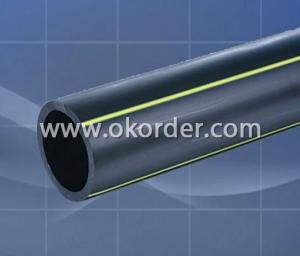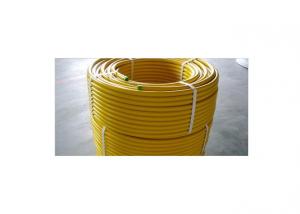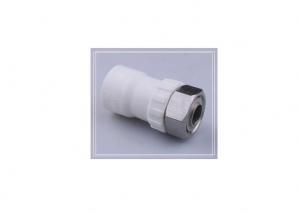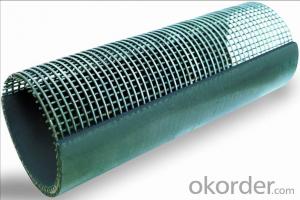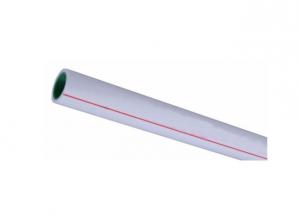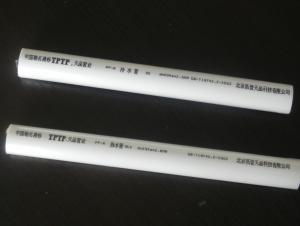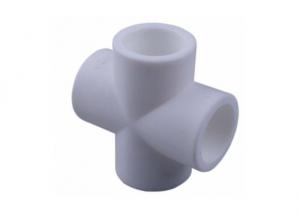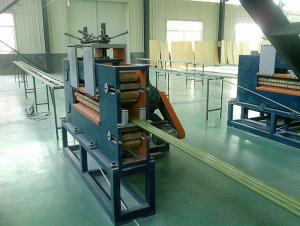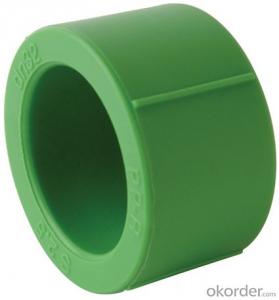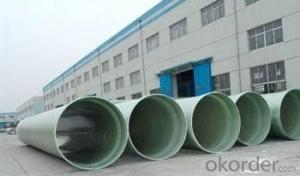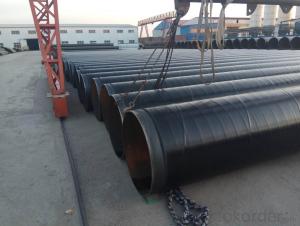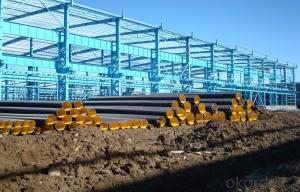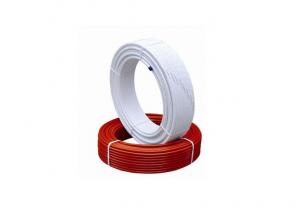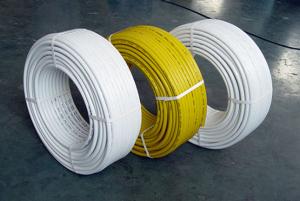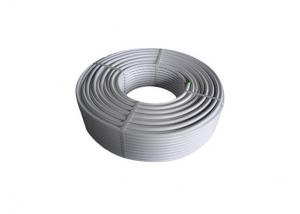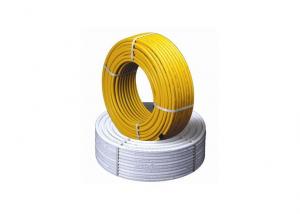Nanometer Antibacterial PP-R Composite Pipes
- Loading Port:
- China Main Port
- Payment Terms:
- TT or LC
- Min Order Qty:
- 1000 Meters m
- Supply Capability:
- 50000 Meters per Day m/month
OKorder Service Pledge
OKorder Financial Service
You Might Also Like
Nanometer Antibacterial PP-R pipe
Size: 20-75 mm
15 years produce experience
Certificate: CE; ISO9001
Features of Nanometer Antibacterial PP-R pipe:
Sizes: 20 to 75mm
Pressure: PN1.25Mpa; PN1.6Mpa; PN2.0Mpa; PN2.5Mpa
Colors: Light grey, white or other colors on request
Connection: Welding
Certification: CE, ISO9001
Advantages of Nanometer Antibacterial PP-R pipe:
High Temperature Resistance: the maximum sustained working temperature is up to 70 °C,the maximum transient temperature is up to 95°C
Heat Preservation: low thermal conductivity which is only 1/1500 of brass pipe. And 1/250 of steel pipe.
Non-toxic: no heavy metal additives, would not be covered with dirt or contaminated by bacterium.
Corrosion Resistant: resist chemical matters or electron chemical corrosion.
Lower Installation Costs: light weight and ease of installation can reduce installation costs by as much as 50%over metal piping system.
Higher Flow Capacity: smooth interior walls result in lower pressure loss and higher volume than metal pipes.
Long Life: more than 50 years under normal conditions
Recycled and Environment-friendly
- Q: Can composite pipes be used for hydroelectric power generation?
- Yes, composite pipes can be used for hydroelectric power generation. Composite pipes offer several advantages such as high strength, corrosion resistance, and lightweight properties, making them suitable for transporting water in a hydroelectric power system. Additionally, their insulating properties help minimize heat loss during water transportation, enhancing the overall efficiency of the power generation process.
- Q: What is the fire resistance rating of composite pipes?
- The fire resistance rating of composite pipes can vary depending on the specific materials and construction methods used. However, composite pipes are generally known to have good fire resistance properties, as they are often made with materials that are non-combustible or have high fire-retardant capabilities.
- Q: What is the flow capacity of a composite pipe?
- The flow capacity of a composite pipe depends on various factors such as the diameter, material composition, internal roughness, and the type of fluid being transported. It is typically determined through hydraulic calculations considering these factors and can vary significantly based on the specific design and characteristics of the composite pipe.
- Q: Are composite pipes suitable for hot water systems?
- Yes, composite pipes are suitable for hot water systems. They are designed to handle high temperatures and are resistant to corrosion, making them a reliable and durable option for carrying hot water in plumbing systems.
- Q: What types of materials are used to make composite pipes?
- Composite pipes are typically made using a combination of materials such as fiberglass, carbon fiber, or other reinforcing fibers, along with a polymer matrix such as epoxy or thermoplastic. These materials are chosen for their strength, durability, and resistance to corrosion, making composite pipes an excellent choice for various industries and applications.
- Q: What's the difference between steel wire mesh plastic composite pipe and steel skeleton composite pipe?
- Laying and installation and environmental comparison:The steel mesh skeleton plastic composite pipe, steel pipe in the internal structure of similar metal hose, anti settling effect is good, especially suitable for the underground pipeline, in complex terrain conditions can also use the pipe body (do not exceed the allowable bending transition radius of curvature conditions).The steel skeleton plastic composite pipe, pipe rigidity, poor adaptability of ground subsidence for underground pipeline construction, pipe joint stress concentration, easy to be destroyed.
- Q: Can composite pipes be used for semiconductor manufacturing?
- Yes, composite pipes can be used for semiconductor manufacturing. Composite materials offer excellent chemical resistance, high strength-to-weight ratio, and low thermal expansion, making them suitable for handling corrosive chemicals and maintaining precise control of temperature during semiconductor manufacturing processes. Additionally, composite pipes can be customized to meet specific requirements such as high-purity applications, reducing the risk of contamination in semiconductor manufacturing.
- Q: Can composite pipes be used for pharmaceutical manufacturing?
- Yes, composite pipes can be used for pharmaceutical manufacturing. Composite pipes, made from materials such as fiberglass or carbon fiber, offer various advantages in pharmaceutical manufacturing processes. They are lightweight, corrosion-resistant, and have excellent chemical compatibility. Additionally, composite pipes can withstand high temperatures and pressures, making them suitable for transporting various pharmaceutical substances and liquids. Their smooth interior surface also minimizes the risk of contamination and allows for easy cleaning, meeting the stringent requirements of pharmaceutical manufacturing.
- Q: Can composite pipes be used in residential plumbing systems?
- Yes, composite pipes can be used in residential plumbing systems. Composite pipes are a popular choice due to their durability, resistance to corrosion, and ability to handle high pressures. They are lightweight, easy to install, and have a long lifespan, making them suitable for various applications, including residential plumbing systems.
- Q: Are composite pipes suitable for agricultural irrigation?
- Yes, composite pipes are suitable for agricultural irrigation. Composite pipes are known for their durability, resistance to corrosion, and ability to withstand high pressure. These characteristics make them ideal for use in agricultural irrigation systems where they can effectively transport water and withstand the demanding conditions in the field. Additionally, composite pipes are lightweight, easy to install, and have a longer lifespan compared to traditional materials, making them a practical choice for agricultural irrigation applications.
1. Manufacturer Overview
| Location | Zhejiang, China |
| Year Established | 2004 |
| Annual Output Value | |
| Main Markets | North America South America Eastern Europe Southeast Asia Africa Oceania Mid East Eastern Asia Western Europe |
| Company Certifications | CE;ISO9001:2000 |
2. Manufacturer Certificates
| a) Certification Name | |
| Range | |
| Reference | |
| Validity Period |
3. Manufacturer Capability
| a) Trade Capacity | |
| Nearest Port | |
| Export Percentage | 31% - 40% |
| No.of Employees in Trade Department | |
| Language Spoken: | |
| b) Factory Information | |
| Factory Size: | 10,000-30,000 square meters |
| No. of Production Lines | 6 |
| Contract Manufacturing | OEM Service Offered Buyer Label Offered |
| Product Price Range | |
Send your message to us
Nanometer Antibacterial PP-R Composite Pipes
- Loading Port:
- China Main Port
- Payment Terms:
- TT or LC
- Min Order Qty:
- 1000 Meters m
- Supply Capability:
- 50000 Meters per Day m/month
OKorder Service Pledge
OKorder Financial Service
Similar products
Hot products
Hot Searches
Related keywords
